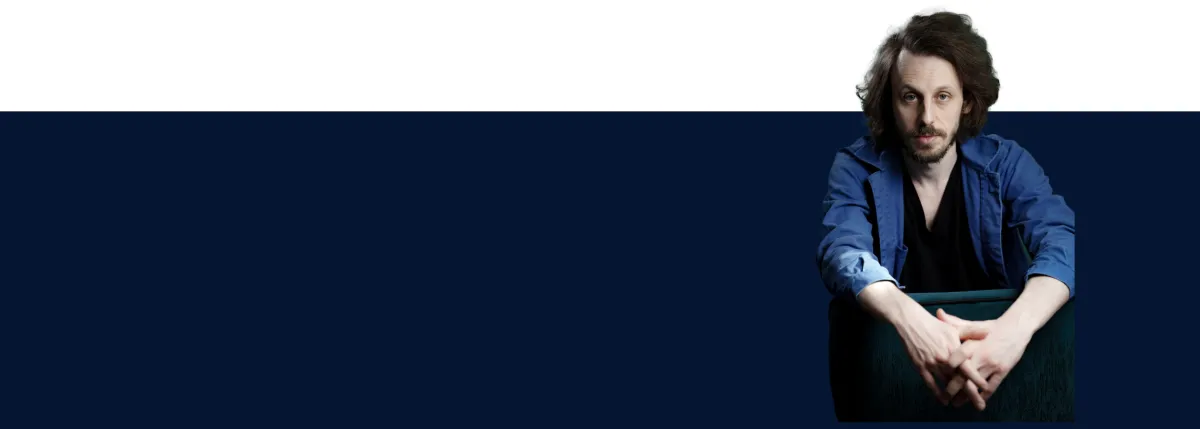First Principles Acting
Summer 2025
🧑🔬 immersive lab & filmed workshops
🎭 Meisner & systemic coaching
🇵🇭 Manila: July 2025
✈️ Next stops: Seoul, Tokyo, Shanghai, Istanbul
🎟️ After each city is confirmed, seats go fast -
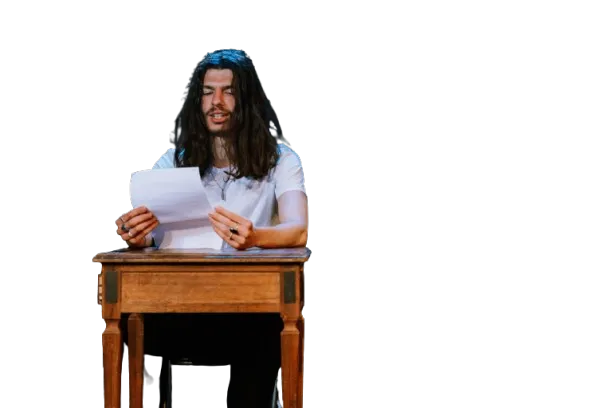
First Principles Acting
Summer 2025
🧑🔬 immersive lab & filmed workshops
🎭 Meisner & systemic coaching
🇫🇷 Paris: November 2025
✈️ Next stops: Seoul, Tokyo, Shanghai, Istanbul
🎟️ After each city is confirmed, seats go fast - Join the waitlist

🤝 Trusted by
Partnerships and collaborations
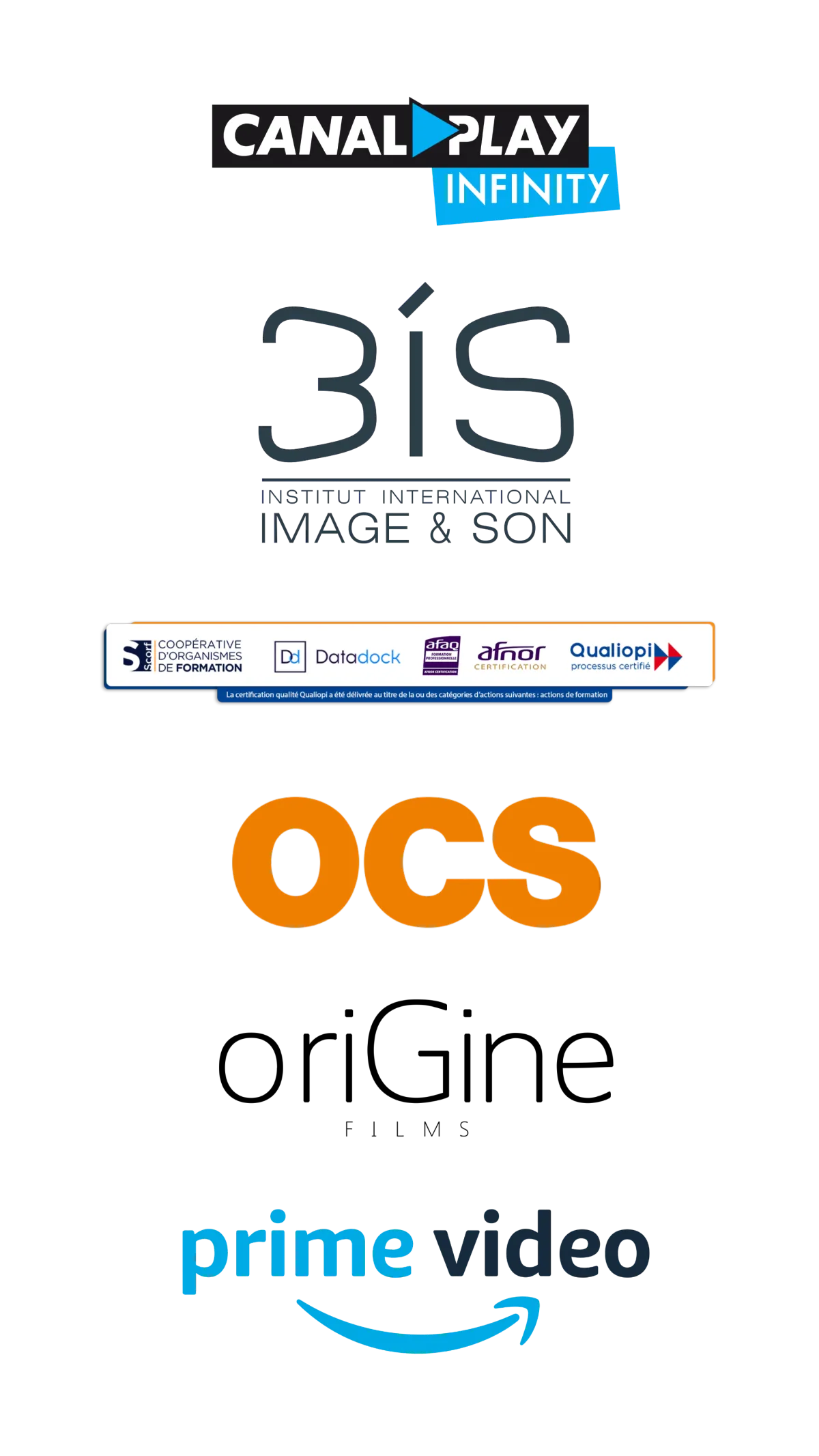
🤝 Trusted by
Partnerships and collaborations

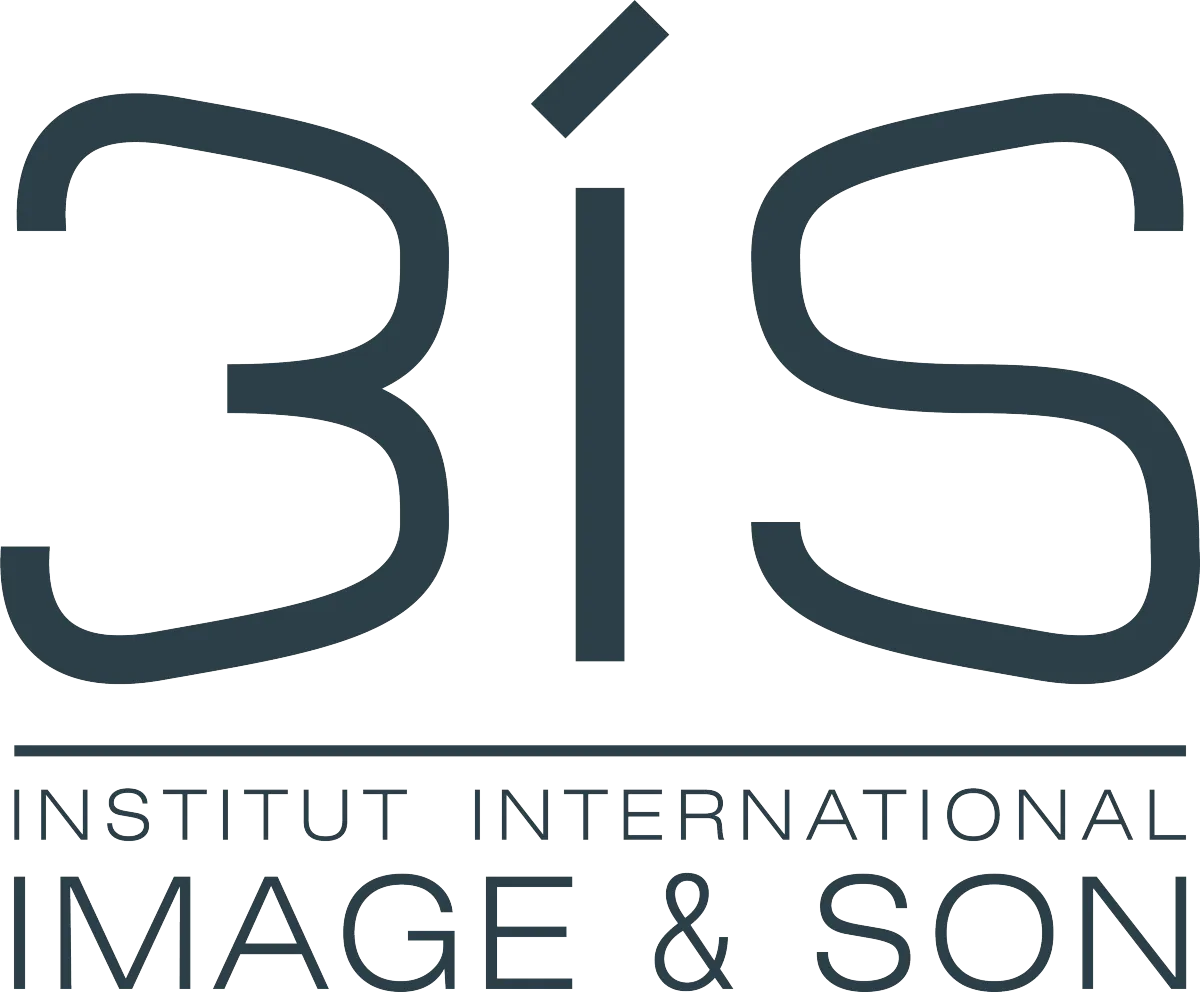


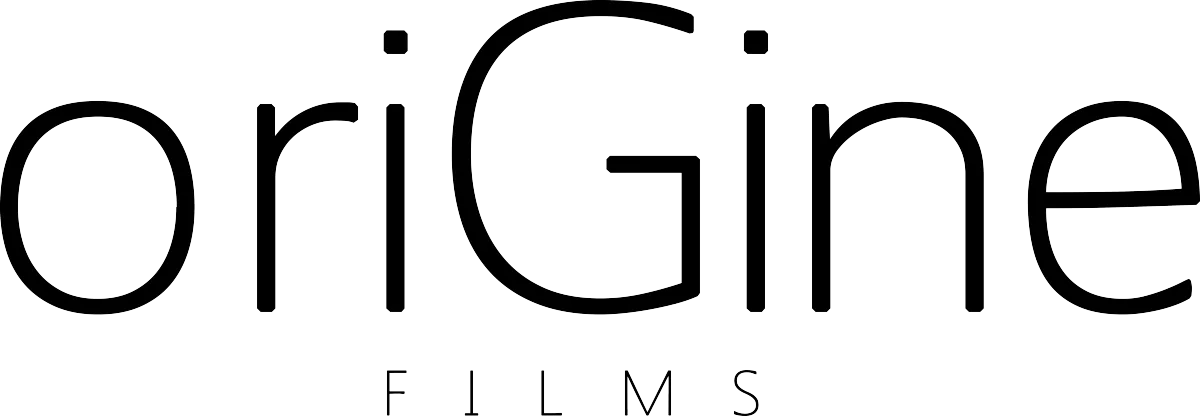
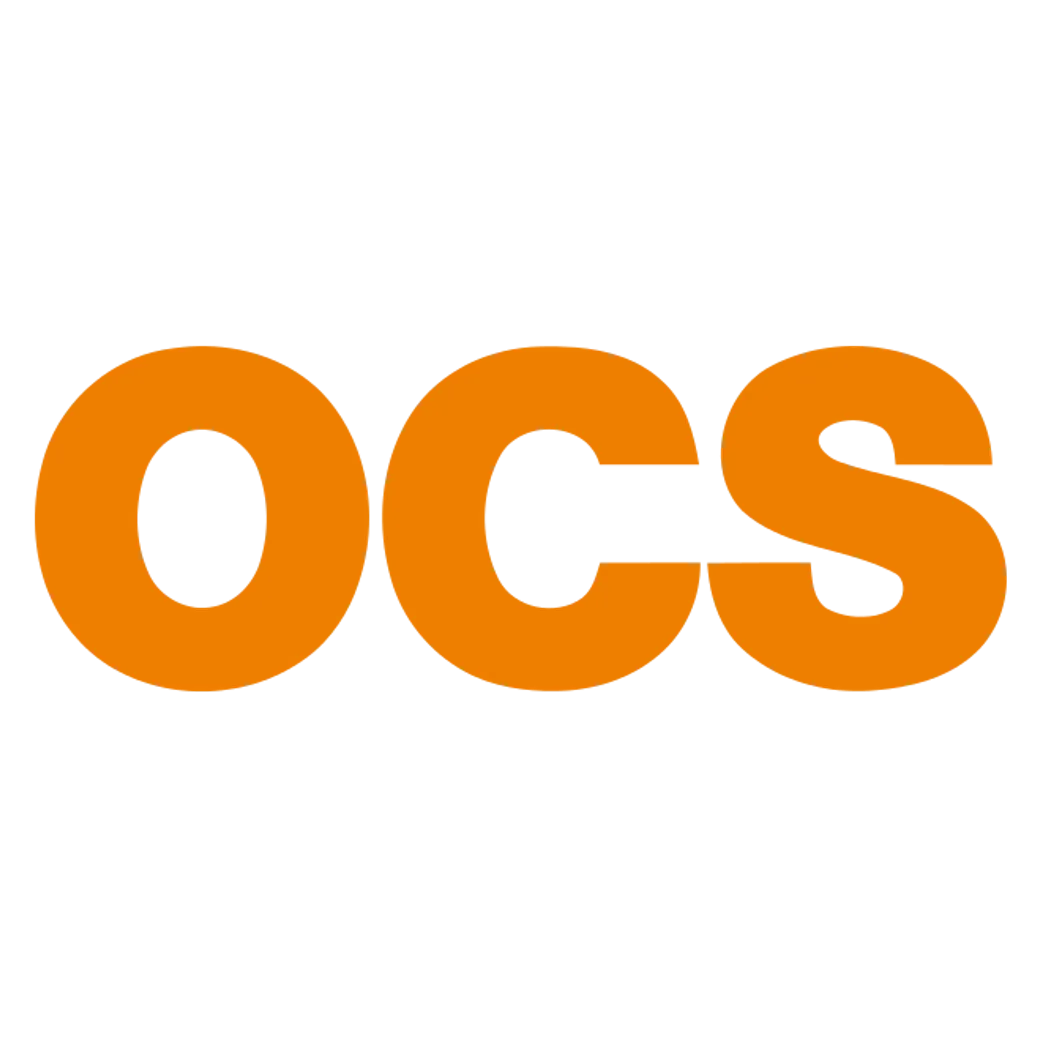
👨🏼🔬 A unique approach based on 10 years of research into the first principles of acting,
grounded in a scientific methodology
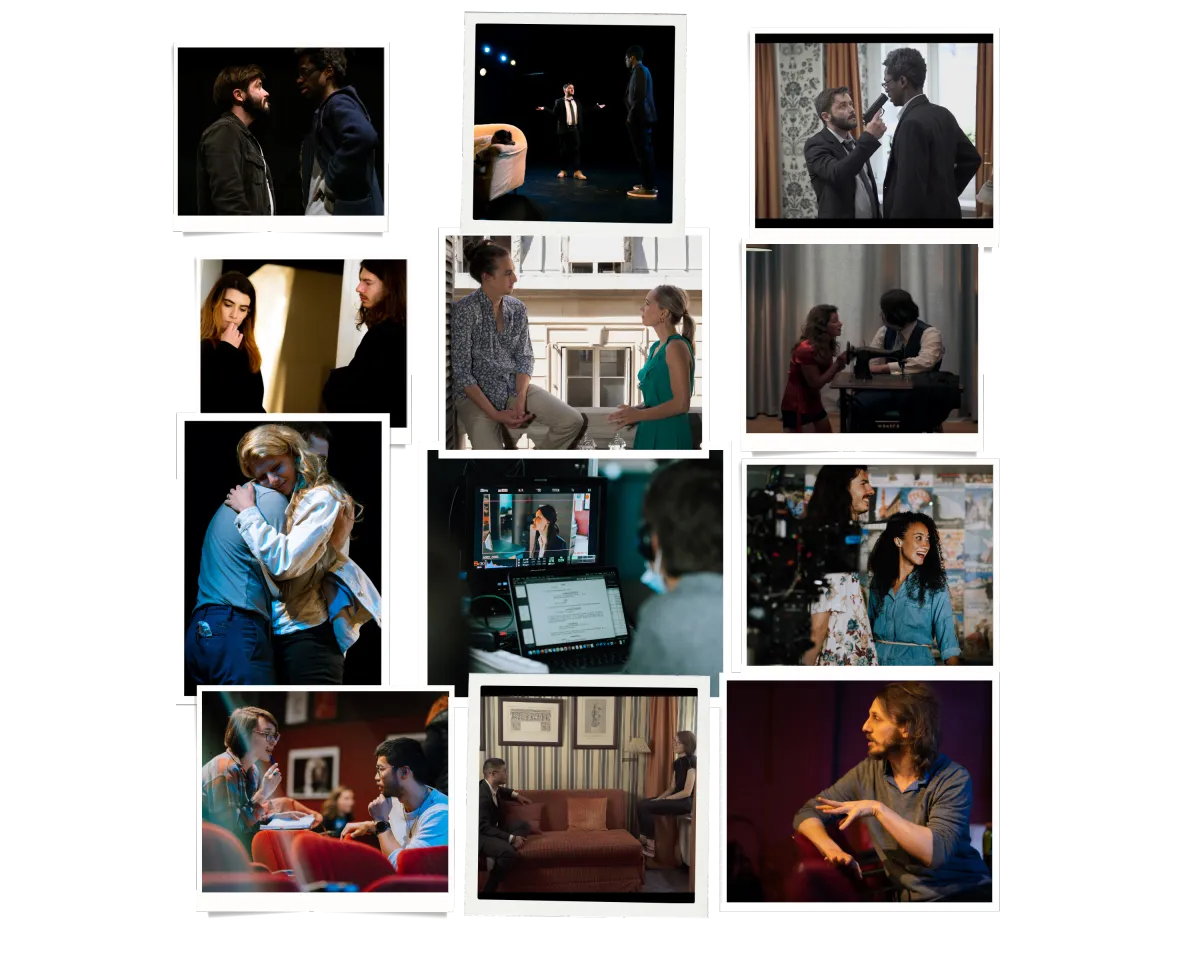
PROGRAM CREATOR
🤓 OCTAVE KARALIEVITCH
After studying science (mathematics and physics in preparatory classes, then the philosophy of science and knowledge), Octave shifted his focus toward psychology and cognitive science, developing a particular interest in three areas of research: creativity, education, and therapy.
Interested in personal growth and emotional freedom, he also trained in contemporary approaches to “brief therapies” and coaching such as NLP and Ericksonian Hypnosis, earning a Master Practitioner certification from the Society of NLP.
After training as an actor, he discovered many Russian and American techniques (including: Constantin STANISLAVSKI, Stella ADLER, Sanford MEISNER, Lee STRASBERG, Eric MORRIS…) and it was the Meisner technique that particularly drew his attention—beyond the emotional honesty it fosters in the actor, for its healthy, playful, and straightforward approach.
Noticing early on the connections between this method and his previous fields of study, he also became aware of the wide variety of its interpretations around the world. He then founded the Paris Meisner Studio to bring qualified teachers to Paris, allowing actors to train in a rigorous and supportive environment while exploring complementary aspects of the technique, its history, and evolution.
In his quest to deepen his understanding of the Meisner technique—for himself and for his students—he designed a novel system of research and development, of which the Meisner & systemic coaching program (also known as First Principles Acting) is the result.
Alongside his teaching and school leadership, Octave continues to train in related disciplines to enrich this ongoing research, having completed, among others, a 5-year Gestalt therapy curriculum at EPG, a trainer certification program, and a course in Radical Honesty developed by Brad Blanton (stemming from Gestalt and Ericksonian hypnosis, aligned with the “point of view” work in the Meisner technique).
He is also interested in traditional meditation practices and Buddhist mind-body systems, particularly Vipassana.
In 2022, Octave produced and co-directed the school’s first short film with Guillaume Caramelle, “C’est pas le Pérou !”, a comedy written by Aurélien Laplace. The film is available on OCS, CanalPlay, and Amazon Prime.
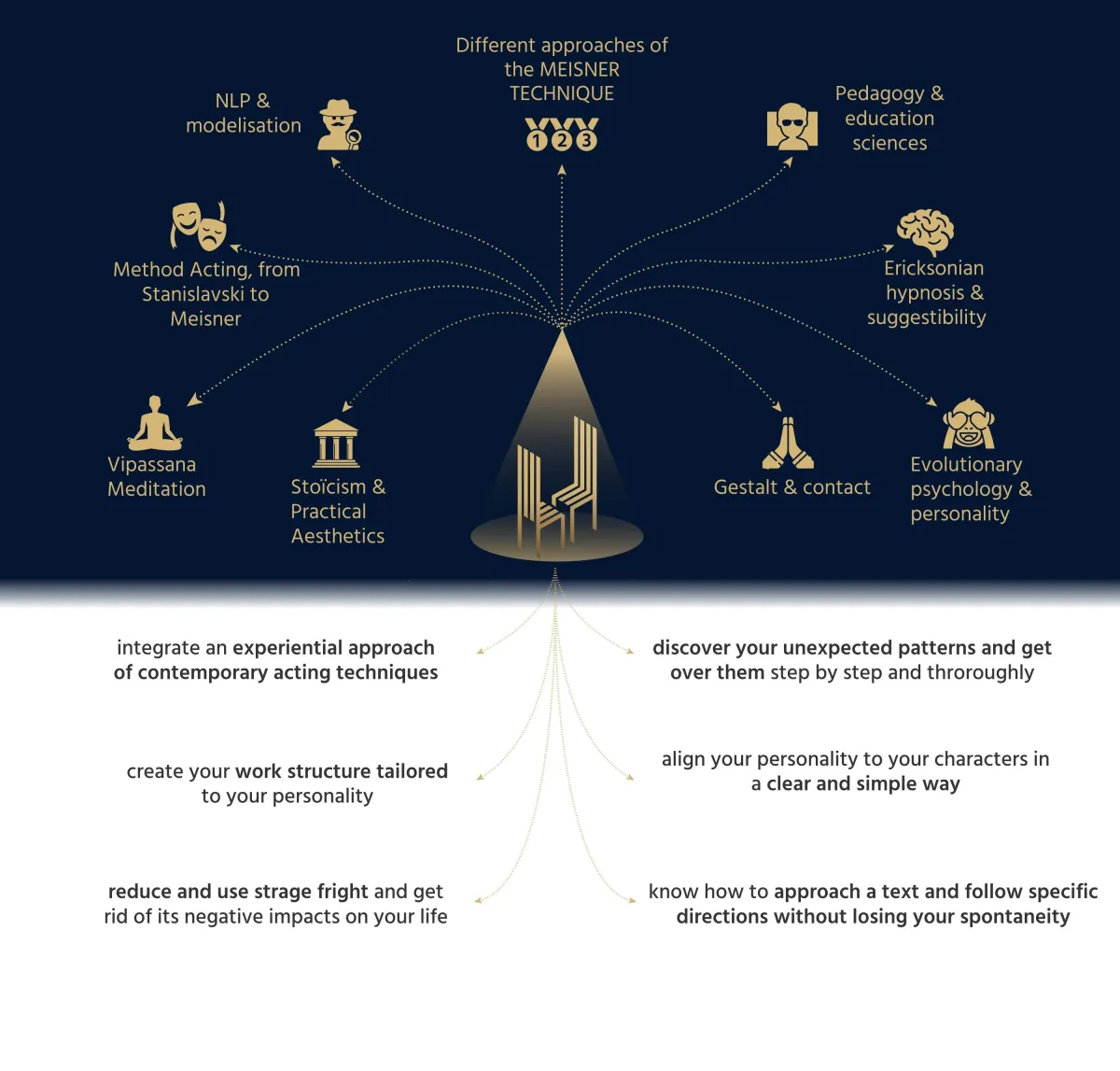
👨🏼🔬 A unique approach based on 10 years of research into the first principles of acting,
grounded in a scientific methodology

PROGRAM CREATOR
🤓 OCTAVE KARALIEVITCH
After studying science (mathematics and physics in preparatory classes, then the philosophy of science and knowledge), Octave shifted his focus toward psychology and cognitive science, developing a particular interest in three areas of research: creativity, education, and therapy.
Interested in personal growth and emotional freedom, he also trained in contemporary approaches to “brief therapies” and coaching such as NLP and Ericksonian Hypnosis, earning a Master Practitioner certification from the Society of NLP.
After training as an actor, he discovered many Russian and American techniques (including: Constantin STANISLAVSKI, Stella ADLER, Sanford MEISNER, Lee STRASBERG, Eric MORRIS…) and it was the Meisner technique that particularly drew his attention—beyond the emotional honesty it fosters in the actor, for its healthy, playful, and straightforward approach.
Noticing early on the connections between this method and his previous fields of study, he also became aware of the wide variety of its interpretations around the world. He then founded the Paris Meisner Studio to bring qualified teachers to Paris, allowing actors to train in a rigorous and supportive environment while exploring complementary aspects of the technique, its history, and evolution.
In his quest to deepen his understanding of the Meisner technique—for himself and for his students—he designed a novel system of research and development, of which the Meisner & systemic coaching program (also known as First Principles Acting) is the result.
Alongside his teaching and school leadership, Octave continues to train in related disciplines to enrich this ongoing research, having completed, among others, a 5-year Gestalt therapy curriculum at EPG, a trainer certification program, and a course in Radical Honesty developed by Brad Blanton (stemming from Gestalt and Ericksonian hypnosis, aligned with the “point of view” work in the Meisner technique).
He is also interested in traditional meditation practices and Buddhist mind-body systems, particularly Vipassana.
In 2022, Octave produced and co-directed the school’s first short film with Guillaume Caramelle, “C’est pas le Pérou !”, a comedy written by Aurélien Laplace. The film is available on OCS, CanalPlay, and Amazon Prime.

WORKSHOP PROGRAM

🙏 Contact Aesthetics
Explore the modalities of contact in your interactions to gradually identify your avoidance zones which limit your range of spontaneous behaviour on stage.
Discover your mechanisms of control and anticipation and re-sensitize yourself to your experiences.
Learn how to be legible whilst being observed.
#gestalt #meisner

🔮 The Suggestibility Elaboration Frameworks
Build improvisations based on emotionally understood relationships with your partners.
Explore the “as if” framework to be sincere within the given imaginary circumstances, and develop the
actor’s faith without effort or attempts to overcompensate, perform, or signal…
Let living, engaged interactions emerge.
#firstprinciples #meisner #NLP #ericksonianhypnosis

🎭 The Observable Behaviour in Play & The Illusion of the Character
Learn to recognize categories of observable behaviour and to optimize for the right thing at each step.
Discover the categories of awareness, the links with your avoidance zones and how to become legible autonomously.
#firstprinciples #awareness #gestalt

🌀 Autonomy in Subtext
Transform the protocoles from the exercises into phenomenological structures that you can use on your own, implicitly.
Get a sense of how to use the technique outside of class, even once the play or scene has already started, without relying on any necessary exercise to warm up with your partners.
#firstprinciples #meisner #NLP #ericksonianhypnosis

👀 Audience Intersubjectivity
Learn how to use the group intersubjectivity to get and give feedback to understand how audience retention relates to the protocoles discovered in class.
#gestalt #firstprinciples #meisner

🧙 Regulations and ritualization
Practice being associated, sensitized and mobilized, on stage, without identifying yourself or your partner with what is happening.
Learn to ritualize the work, and propose or ask for regulations with your partners when necessary.
#firstprinciples #meisner #gestalt

🎬 Introduction to stage directions, text analysis and characterizations
With concrete examples, start exploring how to analyze a text, follow directions and build characterizations to respond to those directions.
Discover the subtext variables you can play on, including interaction verbs and interaction duels.
#textanalysis #firstprinciples #meisner #practicalaesthetics
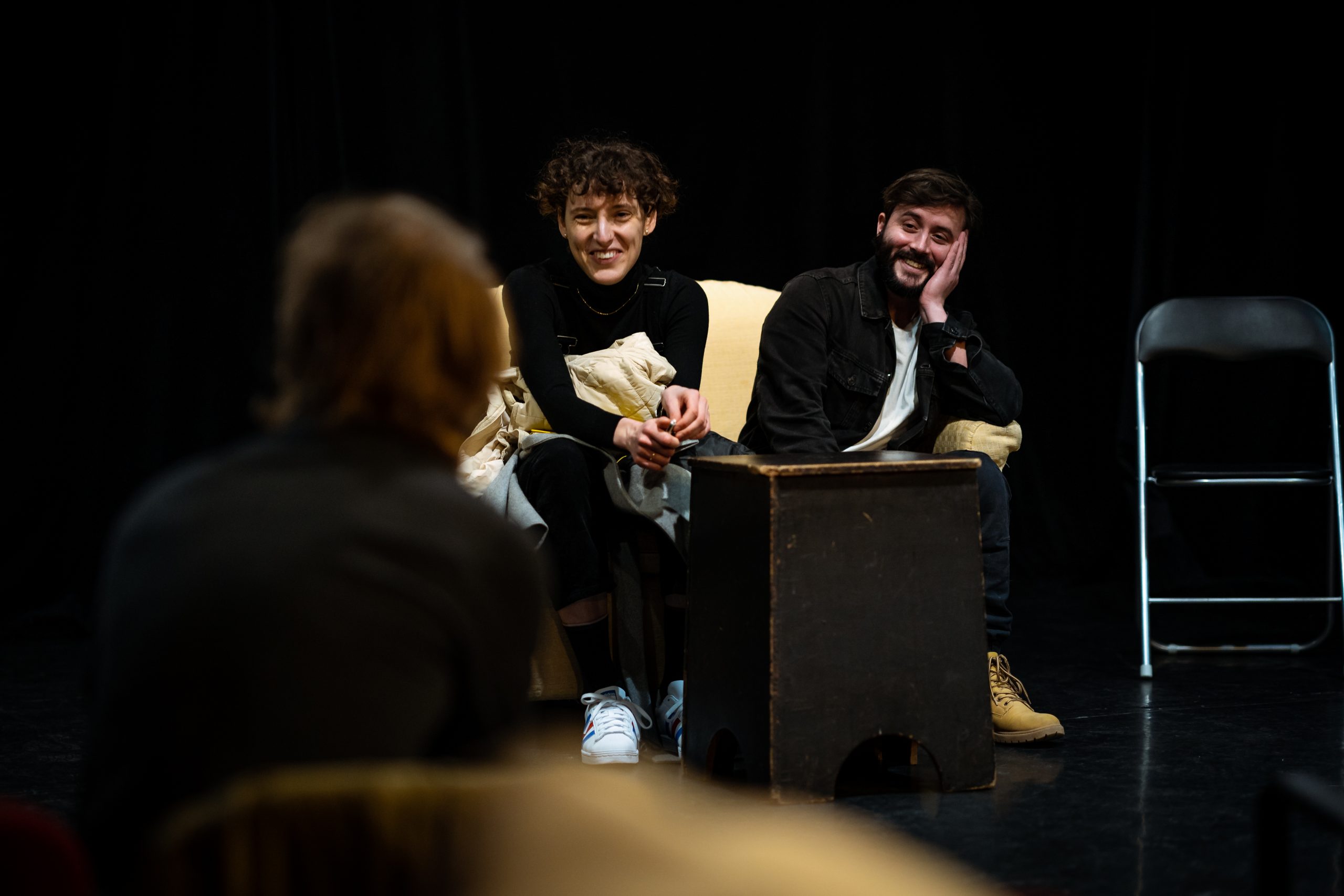
📊 Personalized Axes of Progress
Appy the emotional & interactional ranges framework to your own exercises to understand what to work on and how to develop your casting potential.
#firstprinciples #educationsciences #observablepersonalityframeworks #caracterization
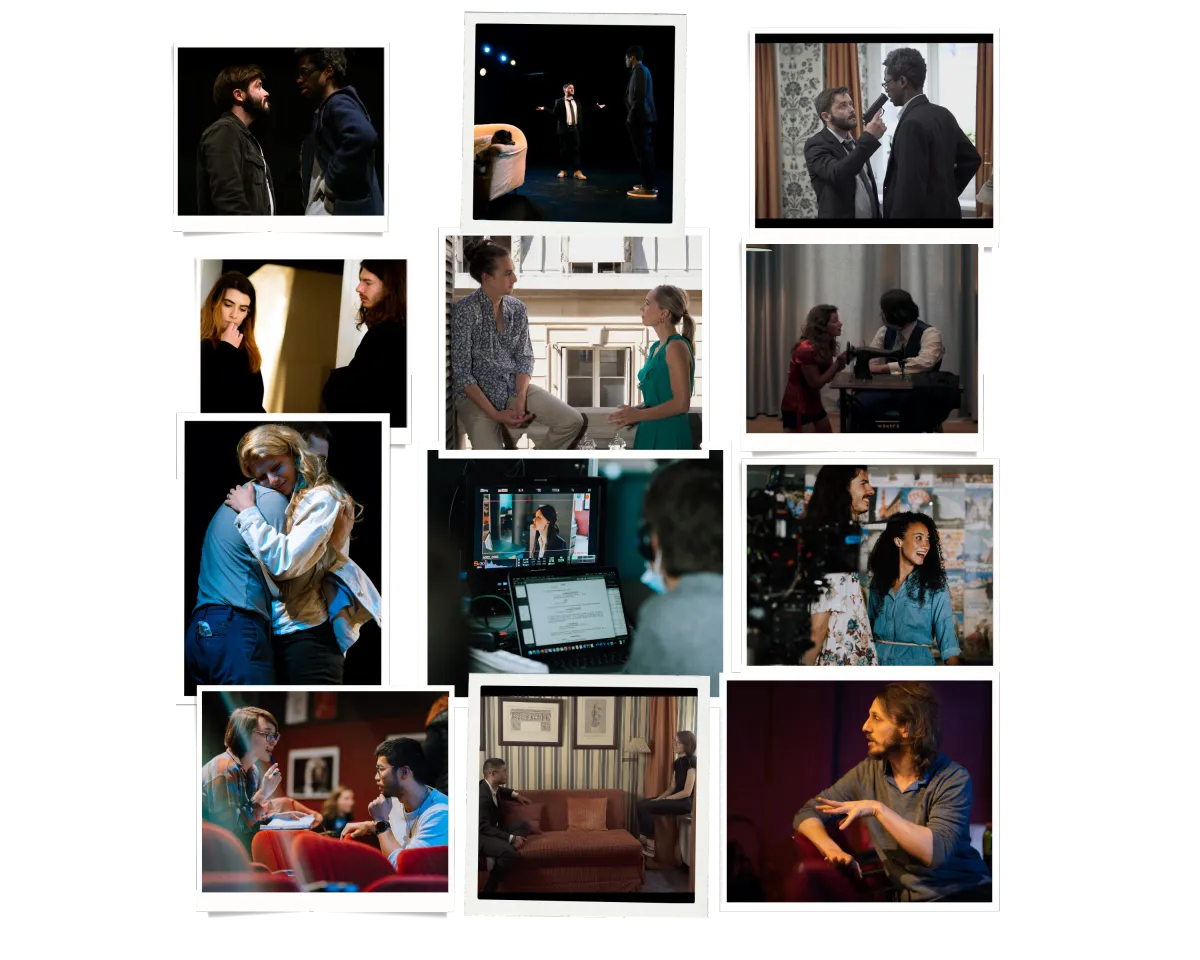
🎥 Filmed exercises and scenes
With concrete examples, start exploring how to analyze a text, follow directions and build characterizations to respond to those directions.
Discover the subtext variables you can play on, including interaction verbs and interaction duels.
#filmproduction #stagedirection #firstprincples #meisner #practicalaesthetics #textanalysis
WORKSHOP PROGRAM

🙏 Contact Aesthetics
Explore the modalities of contact in your interactions to gradually identify your avoidance zones which limit your range of spontaneous behaviour on stage.
Discover your mechanisms of control and anticipation and re-sensitize yourself to your experiences.
Learn how to be legible whilst being observed.
#gestalt #meisner

🔮 The Suggestibility Elaboration Frameworks
Build improvisations based on emotionally understood relationships with your partners.
Explore the “as if” framework to be sincere within the given imaginary circumstances, and develop the
actor’s faith without effort or attempts to overcompensate, perform, or signal…
Let living, engaged interactions emerge.
#firstprinciples #meisner #NLP #ericksonianhypnosis

🎭 The Observable Behaviour in Play & The Illusion of the Character
Learn to recognize categories of observable behaviour and to optimize for the right thing at each step.
Discover the categories of awareness, the links with your avoidance zones and how to become legible autonomously.
#firstprinciples #awareness #gestalt

🌀 Autonomy in Subtext
Transform the protocoles from the exercises into phenomenological structures that you can use on your own, implicitly.
Get a sense of how to use the technique outside of class, even once the play or scene has already started, without relying on any necessary exercise to warm up with your partners.
#firstprinciples #meisner #NLP #ericksonianhypnosis

👀 Audience Intersubjectivity
Learn how to use the group intersubjectivity to get and give feedback to understand how audience retention relates to the protocoles discovered in class.
#firstprinciples #meisner #gestalt

🧙 Regulations and ritualization
Practice being associated, sensitized and mobilized, on stage, without identifying yourself or your partner with what is happening.
Learn to ritualize the work, and propose or ask for regulations with your partners when necessary.
#gestalt #firstprinciples #meisner

🎬 Introduction to stage directions, text analysis and characterizations
With concrete examples, start exploring how to analyze a text, follow directions and build characterizations to respond to those directions.
Discover the subtext variables you can play on, including interaction verbs and interaction duels.
#textanalysis #firstprinciples #meisner #practicalaesthetics

📊 Personalized Axes of Progress
Appy the emotional & interactional ranges framework to your own exercises to understand what to work on and how to develop your casting potential.
#firstprinciples #educationsciences #observablepersonalityframeworks #caracterization

🎥 Filmed exercises and scenes
With concrete examples, start exploring how to analyze a text, follow directions and build characterizations to respond to those directions.
Discover the subtext variables you can play on, including interaction verbs and interaction duels.
#filmproduction #stagedirection #firstprincples #meisner #practicalaesthetics #textanalysis
⌚️ Pre-enrolment closing soon...
⌚️ Enrolment closing soon...
🎟️ 2 options - 5 or 9 days workshop
🎟️ 2 options - 5 or 9 days workshop
🥉 Level 1 :
📆 announced soon
🏫 Monday to Friday
⌚️ 6 to 10pm
🥈 Level 2 :
📆 announced soon
🏫 2 week-ends
⌚️ 2 to 6pm
5 days workshop - Level 1 (4 hours per day)
🟢 Foundations - From Presence to First Scene
🎭 First Principles Acting - Meisner & Systemic Coaching
📈 Starting from scratch, with text work on day 5
📑 Same scene for all, sent in advance
🎥 Filmed exercises
🍿 example of extracts from one exercise with text with Colin & Samita
⚙️ subtitles available in English in the settings
4 more days (2 week-ends / 4 4-hour-sessions) workshop - Level 2
🟠 The Working Actor - Stage Work & Filmed Scene
🧑⚖️ Introduction to stage directions
🏅 More advanced and in depth exercises
🎬 Filmed scenes at the end
(one per person minimum - editing not included)
🍿 example of this scene with Laurent & Cyril which was filmed in 2 takes (one close up & one large) with 2 cameras - we filmed all the scenes for one group on this same day
⚙️ subtitles available in English in the settings
🥉 Level 1 :
📆 announced soon
🏫 Monday to Friday
⌚️ 6 to 10pm
🥈 Level 2 :
📆 announced soon
🏫 2 week-ends
⌚️ 2 to 6pm
5 days workshop - Level 1 (4 hours per day)
🟢 Foundations - From Presence to First Scene
🎭 First Principles Acting - Meisner & Systemic Coaching
📈 Starting from scratch, with text work on day 5
📑 Same scene for all, sent in advance
🎥 Filmed exercises
🍿 example of extracts from one exercise with text with Colin & Samita
⚙️ subtitles available in English in the settings
4 more days (2 week-ends / 4 4-hour-sessions) workshop - Level 2
🟠 The Working Actor - Stage Work & Filmed Scene
🧑⚖️ Introduction to stage directions
🏅 More advanced and in depth exercises
🎬 Filmed scenes at the end
(one per person minimum - editing not included)
🍿 example of this scene with Laurent & Cyril which was filmed in 2 takes (one close up & one large) with 2 cameras - we filmed all the scenes for one group on this same day
⚙️ subtitles available in English in the settings
😎 Join the early bird group and save 50% on launch price.
📝 Get on the waiting list for next workshops or discovery classes near you.
😎 Join the early bird group and save 50% on launch price.
📝 Get on the waiting list for next workshops or discovery classes near you.
📞 Free orientation call
We will respond to all your questions and give you a personal feedback on your current level and goals.

📞 Free orientation call
We will respond to all your questions and give you a personal feedback on your current level and goals.
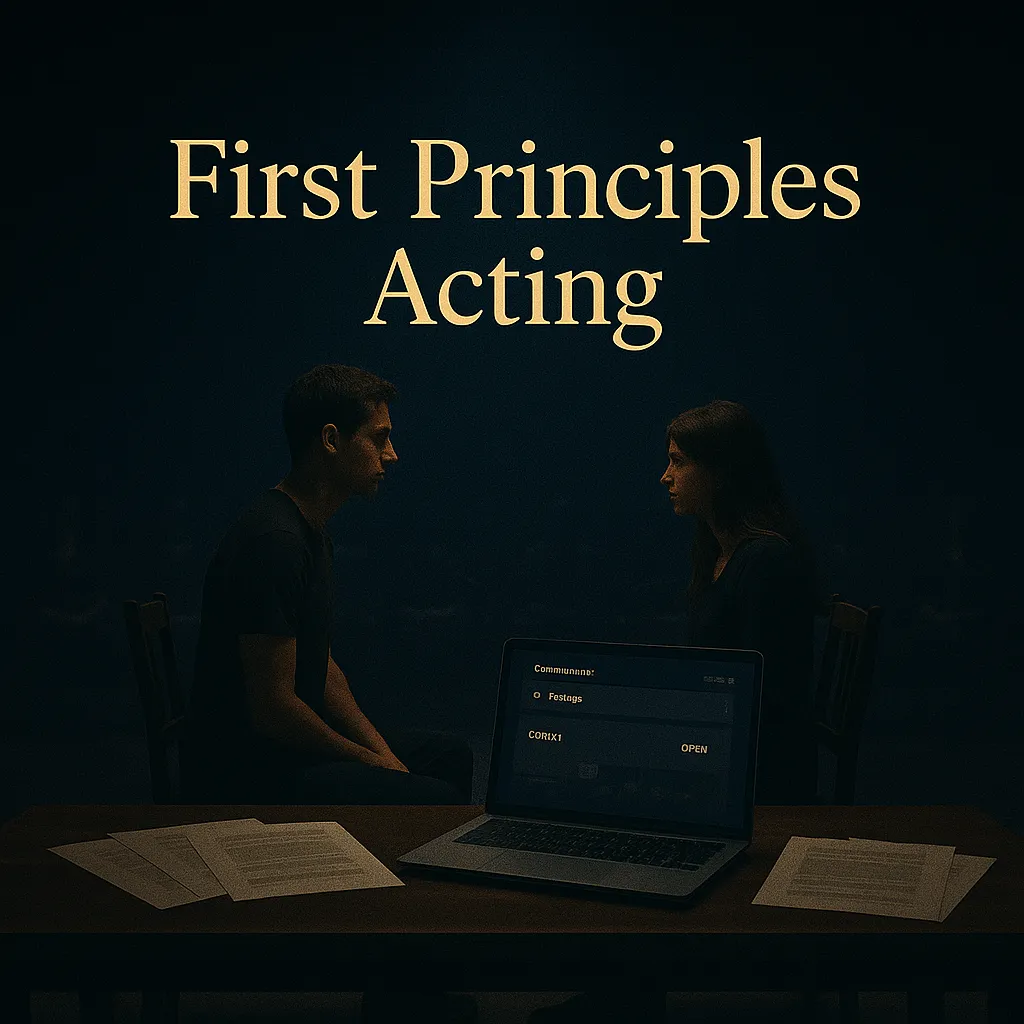
🔑 5-session, 4-hour workshop, discounted price for this first tour
🧑🔬 An intensive, step-by-step process adapted to each person's individual challenges, using our comprehensive approach.
🎟️ Apply now to join the early bird batch and get a 50% discount
🥈 Level 2 = optional
👥 Limited to 14 people.

🔑 5-session, 4-hour workshop, discounted price for this first tour
🧑🔬 An intensive, step-by-step process adapted to each person's individual challenges, using our comprehensive approach.
🎟️ Apply now to join the early bird batch and get a 50% discount
🥈 Level 2 = optional
👥 Limited to 14 people.
What Students say about us

"I had just finished a Meisner training at another studio and wanted to try the different approach offered at Paris Meisner Studio... (...) I found a renewed sincerity in expressing my emotions and inner experiences... (...) Octave’s precise feedback helped me discover emotional depth, a real presence on stage—and in daily life... (...) I’m also happy to be surrounded by motivated people at the studio who are committed and help me grow through the rehearsals organized outside of class."

Sara Novak
Actress

"As a professional actor for nearly 10 years, improving my craft has always been essential. I first trained in Belarus, right at the heart of Stanislavski’s foundational work... (...) Seven years ago, I discovered Sanford Meisner’s technique — and it was a shock. Paris Meisner Studio is the third place I’ve studied Meisner... I don’t ask you to take my word for it, but this is a true testimony: in just 3 months here, I learned more than in a year with other 'Meisnerians'... More than in 3 years at Cours Florent. You’ve nailed it. I’m genuinely excited. Long live PMS."
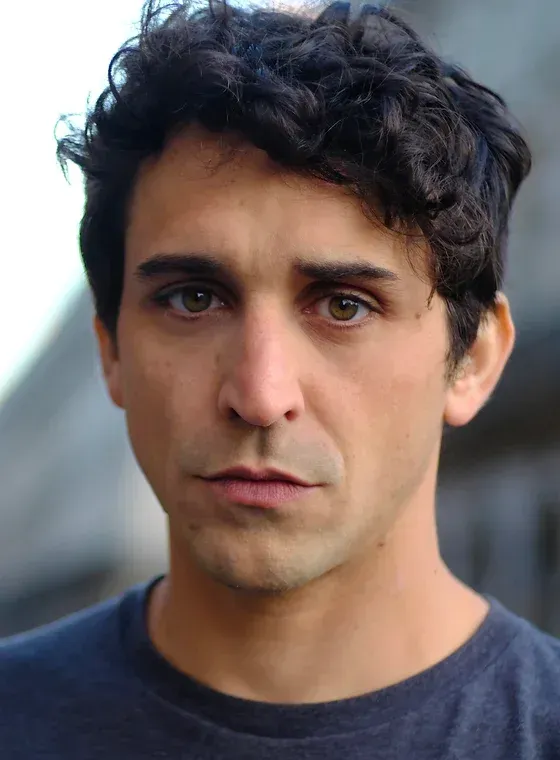
Gaëtan Penna
Actor

"As an improviser, I wanted to become an actor more grounded in the present moment. Octave’s inclusive and caring pedagogy not only helped me reach that goal, but also to improve in other areas—mostly related to acting, and also personally. In the end, the people who have ‘something’ on stage are the ones who fully accept themselves in front of an audience or a camera… and I feel like I’ve been doing that much better since completing the Paris Meisner Studio training."

Raphaël Frisch
Actor & improviser

"I was looking for authenticity and depth in my acting, and the studio’s program completely fulfilled my request. Sometimes, I come home from class feeling ‘shaken’ and, to be honest, I love it. It’s so common to leave the class feeling like you’ve touched something deep—and have something to work on until the next session. Our personal blocks are quickly brought to light, and Octave gives us appropriate work directions. That’s when you realize acting can be… therapeutic. What a gift! The journey may seem long, but progress comes quickly. Today, I can’t wait to test this new approach to text work in auditions and on set."

Meryl Rakoto
Actress

"I was able to find stability in instability (...), which for me was a revelation. I no longer fabricate an idea of the scene or the character—I embody it in the present. This gives me confidence and a new sense of freedom in my acting for castings and shoots... (...) The approach is deep and pragmatic... (...) The work on texts and scenes is coherent and efficient... (...) This 'Meisner & Systemic Coaching' program is a solid holistic training. It's a human actor's laboratory that allows us to build our own autonomy. A real revelation of our authentic lived experience. The classes are both enriching and caring."

Puna Prokop
Actress

"Octave’s course (...) helped me clarify the different approaches to repetition. In truth, depending on the teacher, the exercise can take very different forms. It was really confusing for me. Octave’s clarifications helped me understand both the differences and the similarities. What is essential, and what is not (...). I ended up having an experience that impacted me more than most of my previous activities—and in a shorter time."

Cyril Solbiac
Actor & improvisation teacher

"Torn between the fear of overacting and the fear of not ‘pushing far enough’, I was also looking for an approach that would allow me to keep progressing without interfering with my current projects. The training at the studio matched exactly what I was looking for. I found exercises that brought my unconscious mechanisms to light and helped me gain sincerity. I rediscovered that spontaneity flows naturally when you are truly present with yourself and your partner, rather than clinging to preconceived ideas of characters or situations. Both the learning process and the text work are unlike anything I’ve experienced before—with incredible results!"

Diane Benefice
Actress

"The Meisner technique practiced at Paris Meisner Studio has greatly helped me in my craft as an actor! The teacher’s scientific approach is extremely efficient—never a question left unanswered. Always precise, always kind. And even though I’m not the kind of actor who wants to stick to a single method, I would still recommend every actor who wants to grow in their work to add a Meisner string to their bow! (Partner work, presence.)"

Arthur Crussels
Actor

"In a very short time, I noticed a real evolution both on a personal level and in my approach to acting. On one hand, it helped me reconnect with emotions that had been buried for years, to get to know myself better by being sincere in my reactions, to receive honest feedback about the image I give (which is almost impossible in daily life), and to become more spontaneous. It’s a process that helps you be more yourself — which is both liberating and joyful. On the other hand, in terms of the actor’s craft, building the work on who I deeply am gives me the sense of leaning on something solid, stable, and grounding. It’s clear to me that this method allows for greater authenticity and depth in the way I embody a character — which is exactly what I’ve been looking for."

Laurence Dupuis
Actress

"Paris Meisner Studio not only changed my acting, but also the way I interact in everyday life. I learned to understand myself better — what triggers me, and how — so that I could choose whether or not to incorporate those reactions into my acting. I had taken several trainings before, some Meisner-based, others not, and the Meisner & Systemic Coaching program allowed me to connect the dots and clarify the function of many exercises. Especially to understand, on my own, why some approaches worked and others didn’t. Thanks to this technique, I was also able to take a step back and observe both my own behavior and that of others — and to recognize certain patterns and dynamics in our interactions."

Katia Crivellari
Actress & dancer
What Students say about us

"I had just finished a Meisner training at another studio and wanted to try the different approach offered at Paris Meisner Studio... (...) I found a renewed sincerity in expressing my emotions and inner experiences... (...) Octave’s precise feedback helped me discover emotional depth, a real presence on stage—and in daily life... (...) I’m also happy to be surrounded by motivated people at the studio who are committed and help me grow through the rehearsals organized outside of class."

Sara Novak
Actress

"As a professional actor for nearly 10 years, improving my craft has always been essential. I first trained in Belarus, right at the heart of Stanislavski’s foundational work... (...) Seven years ago, I discovered Sanford Meisner’s technique — and it was a shock. Paris Meisner Studio is the third place I’ve studied Meisner... I don’t ask you to take my word for it, but this is a true testimony: in just 3 months here, I learned more than in a year with other 'Meisnerians'... More than in 3 years at Cours Florent. You’ve nailed it. I’m genuinely excited. Long live PMS."

Gaëtan Penna
Actor

"As an improviser, I wanted to become an actor more grounded in the present moment. Octave’s inclusive and caring pedagogy not only helped me reach that goal, but also to improve in other areas—mostly related to acting, and also personally. In the end, the people who have ‘something’ on stage are the ones who fully accept themselves in front of an audience or a camera… and I feel like I’ve been doing that much better since completing the Paris Meisner Studio training."

Raphaël Frisch
Actor & improviser

"I was looking for authenticity and depth in my acting, and the studio’s program completely fulfilled my request. Sometimes, I come home from class feeling ‘shaken’ and, to be honest, I love it. It’s so common to leave the class feeling like you’ve touched something deep—and have something to work on until the next session. Our personal blocks are quickly brought to light, and Octave gives us appropriate work directions. That’s when you realize acting can be… therapeutic. What a gift! The journey may seem long, but progress comes quickly. Today, I can’t wait to test this new approach to text work in auditions and on set."

Meryl Rakoto
Actress

"I was able to find stability in instability (...), which for me was a revelation. I no longer fabricate an idea of the scene or the character—I embody it in the present. This gives me confidence and a new sense of freedom in my acting for castings and shoots... (...) The approach is deep and pragmatic... (...) The work on texts and scenes is coherent and efficient... (...) This 'Meisner & Systemic Coaching' program is a solid holistic training. It's a human actor's laboratory that allows us to build our own autonomy. A real revelation of our authentic lived experience. The classes are both enriching and caring."

Puna Prokop
Actress

"Octave’s course (...) helped me clarify the different approaches to repetition. In truth, depending on the teacher, the exercise can take very different forms. It was really confusing for me. Octave’s clarifications helped me understand both the differences and the similarities. What is essential, and what is not (...). I ended up having an experience that impacted me more than most of my previous activities—and in a shorter time."

Cyril Solbiac
Actor & improvisation teacher

"Torn between the fear of overacting and the fear of not ‘pushing far enough’, I was also looking for an approach that would allow me to keep progressing without interfering with my current projects. The training at the studio matched exactly what I was looking for. I found exercises that brought my unconscious mechanisms to light and helped me gain sincerity. I rediscovered that spontaneity flows naturally when you are truly present with yourself and your partner, rather than clinging to preconceived ideas of characters or situations. Both the learning process and the text work are unlike anything I’ve experienced before—with incredible results!"

Diane Benefice
Actress

"The Meisner technique practiced at Paris Meisner Studio has greatly helped me in my craft as an actor! The teacher’s scientific approach is extremely efficient—never a question left unanswered. Always precise, always kind. And even though I’m not the kind of actor who wants to stick to a single method, I would still recommend every actor who wants to grow in their work to add a Meisner string to their bow! (Partner work, presence.)"

Arthur Crussels
Actor

"In a very short time, I noticed a real evolution both on a personal level and in my approach to acting. On one hand, it helped me reconnect with emotions that had been buried for years, to get to know myself better by being sincere in my reactions, to receive honest feedback about the image I give (which is almost impossible in daily life), and to become more spontaneous. It’s a process that helps you be more yourself — which is both liberating and joyful. On the other hand, in terms of the actor’s craft, building the work on who I deeply am gives me the sense of leaning on something solid, stable, and grounding. It’s clear to me that this method allows for greater authenticity and depth in the way I embody a character — which is exactly what I’ve been looking for."

Laurence Dupuis
Actress

"Paris Meisner Studio not only changed my acting, but also the way I interact in everyday life. I learned to understand myself better — what triggers me, and how — so that I could choose whether or not to incorporate those reactions into my acting. I had taken several trainings before, some Meisner-based, others not, and the Meisner & Systemic Coaching program allowed me to connect the dots and clarify the function of many exercises. Especially to understand, on my own, why some approaches worked and others didn’t. Thanks to this technique, I was also able to take a step back and observe both my own behavior and that of others — and to recognize certain patterns and dynamics in our interactions."

Katia Crivellari
Actress & dancer
🎙️ Sanford Meisner's last teaching protégé Jim Jarrett mentions our work :
❓ Frequently Asked Question
😎 I have already practiced the Meisner technique, do I need to start at Level 1?
Ideally, yes. Everyone who has never worked with us needs to start at Level 1. Here is why.
Whilst strongly influenced by Sanford Meisner's technique, this approach goes beyond the traditional way to do the exercises, and contains quite a few exercises (from day 1) that you wouldn't have studied in a Meisner class, yet are fundamental for the rest of the work (Interactive Imagination Exploration before fantasies, Awareness work, Contact Avoidance patterns in the repetition exercise, Suggestibility Elaboration Frameworks to go from repetition to improvisations...).
Those programs are also both fast, and slow, at the same time :
👉 Fast because we won't wait for ages before getting to text work, and even stage directions.
The faster we can get to actual scenes, the faster everyone can understand where everything fits, and then be motivated to practice more on their own and develop an actual professional skill. We always go back and forth between scene work and foundational exercises.
👉 Slow because we don't go faster than your emotional and experiential rhythm, in a very Gestalt philosophy.
We don't force the technique on the actor when something seems to "block" them and we take the time needed to accompany everyone unfold their experiences and go beyond those blind spots or dissociation patterns.
Only then can they keep what they learnt in class in an organic and durable manner so they can be autonomous in the work, which is the ultimate goal. Some changes can happen in an acting class that are impressive, both for the actor and the audience, but don't necessarily last outside of class, or can even be counterproductive. This is a big part of our research.
That is also why we limit the number of students to 14 people, for 4 hours sessions. Because it takes time to individualise the feedback and accompany everyone depending on where they're at.
Going faster than that, and trying to get to Level 2 directly, isn't wise because you won't learn as much and as deeply.
That being said, in exceptional classes, if some actors can't make it for Level 1 because of dates, and seats remain open in Level 2, we might try to catch you up with some of what you missed so you can still get some practice in a Level 2 workshop instead of nothing (especially since we might not come back for months, or a year, depending on the organization needs for each place, the demand, and the number of qualified teachers we can propose each time).
You can discuss all of that with us directly in a free orientation call to check what is best for you and respond to all your questions.
🎖️ Do I need priori experience to join? Will I be with serious actors?
You do not need any previous experience of any kind in order to join a workshop.
In this approach, we won't "act", especially at first, and even as we move through more advanced exercises, we will set up our "performances" in directly, so we can really do what we do and follow the foundational protocols as they have shown to work for each student, gradually with the teachers (and also the audience) feedbacks in very specific ways.
So everyone will start at Level 1 in this technique anyway.
In the same way that if you learn a new martial art you will be a white belt at first, even if you are a black belt in another martial art, coherent and precise acting techniques have their own set of rules and training protocols. There is no reason why anyone wouldn't profit from learning a new technique as it is supposed to be learnt, instead of thinking they already are "good actors", whatever that means for them, and they should skip ahead in exercises they never practiced.
Some actors sometimes think that being in a "beginner" class will reflect poorly on their self-esteem, as they have already shot many movies, or acted in many plays, or did many courses. It's perfectly normal not to want to waste time and to preserve your own confidence in yourself, but acting is about exploring new things that change all the time (new roles, new experiences, or the same ones but as if you were discovering them for the same time), and this approach in particular is quite refined and precise.
Wanting to skip ahead or to learn only with "professional actors", or in a language that you would like to learn, or with people that you would like to meet... isn't the right way to develop a skill seriously.
If you want to practice Gestalt group work, you will practice, with a qualified Gestalt practitioner, with other people that have different personalities and experiences and you will work on the only thing you can really work on : yourself.
If you workout in the gym with a great coach, you will have your own exercises to work on, regardless of the level of other people in the same gym.
Our programs are in between a few of those philosophies, because we will help you work on yourself as a person in order to become a better actors, especially in overcoming what limits your emotional and interactional scales, so you can be legible (easy to read) and directable (able to follow directions) whilst being observed. It is a professional skill that requires you to be able to work with people from all levels, because even in the best produced movies, some actors might have gotten the role through a street casting or open call, or have completely different techniques from you.
If you are going to do this work, you need to come with a fresh and open mind to explore something new, with different people that you don't choose. Sometimes the people who advanced the fastest in this work don't have much prior acting experiences, sometimes it's the reverse. There is no general rule for this.
🎥 Will I be filmed during the workshops?
Mostly, yes - but only if you want.
We won't always film all of the exercises, but a good proportion at least, for people who want.
This helps you get used to working with those tools whilst being filmed, which is an additional pressure on top of having an audience and being on stage, and helps you develop a professional skill.
It also allows you to get feedback after the fact by seeing some of your exercises in video, as well as use some extracts from your demo-reel.
We might ask you if you are ok with publishing some extracts on our own channels and social media, in order to document the work and promote the actors who take part in it.
There is something quite compelling about seeing humain beings explore themselves and the contact with their partners, or their imagination, or scene work, in a way that is sincere and imperfect and courageous. We often get great feedback from professionals on extracts from this work, and some actors get contacted because they have been seen.
That being said, and most importantly, we won't publish any extract of your work without your agreement, so you will be able to choose what you are comfortable with retrospectively.
If you feel like it, it is most useful to get filmed as much as you can, and it's an opportunity we propose that is quite rare and complex to organize properly, but if you feel like it is too early for you or want to explore some exercises first without being filmed, we can also absolutely not record some (or any) of your exercises.
If you are pre-enrolling to be on a waiting list for a discovery class or workshop, you can precise that at the end of this form, so we can organize who practices with whom, in order for people who prefer being filmed to work more often who people who do too.
🚪 Do I need to audition to get in?
For the reasons listed in the questions above, we do not have people audition to get in.
Those workshops are quite short and intensive, and the best way to see how people develop in this work is to actually do the work.
For our longer courses we have pre-enrolment phone calls, were we verify two things :
1️⃣ That people understand what type of work it is, and want to do it.
It isn't a practice where you should expect to "hide better", or "control more", especially at first. So you should be interested in self-exploration on stage, to an extent, in order to profit from it the most.
We can accompany best people who are motivated to work, but we can absolutely help everyone develop at their own pace, everyone being different and more or less naturally advanced in one exercise or another, and we can't really anticipate that beforehand.
Since we offer an actual pedagogy in which we believe in and of which we see the results, we do not find it ethical to pre-select people based on how easy we believe it will be to work with them (which can't really be predicted accurately in this work anyway).
From our experience in working with different schools and teachers for years, we know that it is a common marketing practice to pretend to be very selective to appear like a competitive institution, whilst at the same time often accepting everyone as long as classes are not full. So we don't do that. We accept enrolments until each workshop is full, and if the demand is high enough we try to propose more groups the next times if we can.
2️⃣ The second criteria we have for our regular course is that people commit to rehearsing outside of class.
It links to the previous points, because our mission is to help actors become autonomous in this approach.
We also help other school develop their programs, and we train teachers in this approach. We do not try to control a small group of people by keeping endless secrets about the work, we know that the technique is subtle, complex, and takes a while to learn anyways, and we want to document it in open source as much as we can and transmit it to as many people as there are who really want to learn.
For a workshop, we can't expect from people to rehearse much on top of an intensive and short practice, but we do hope that you develop a desire to practice long term, and keep regrouping with your classmates after the workshop, or in between workshops.
The technique has been adapted so there is as little friction as possible in the learning process, and that it is both efficient and secure.
So it should, if you want to become better, be quite fun to learn. But a good thing to keep in mind is that it will be a lifetime exploration, if you are interested in this work, to keep improving and exploring, like doing music, like doings sports, or exploring a new language or culture.
🛋️ I saw there were tools from therapy which inspired this work. Will this be like a therapy? How personal will it get?
This is an important question that can only be addressed by clarifying what is meant by "therapy".
There are all kinds of therapeutic approaches, some of which we disapprove of, either in general or for this work, because we find them unhealthy or counterproductive in an acting class.
And there are all kinds of things that can be "therapeutic" whilst not being therapy per se, just because they help you feel better, grow as a person, unblock yourself emotionally or go beyond your usual limitations and fears.
On the contrary, there are all kinds of things that will traumatise you and have detrimental side effects, even if they are not labeled "therapy".
For instance, a big part of the work from Lee Strasberg on affective recall has shown to be dangerous for people as it makes them rehash traumas in order to stimulate emotions (which often takes quite a while to prepare and isn't even practical in a professional context).
Stanislavski discovered this practice from French psychologist Theodule Ribot, then his student Boleslavski taught it in the American Laboratory Theatre (to Lee Strasberg, Sanford Meisner and Stella Adler).
Stella Adler (and Meisner too - as precised here in our interview with Jim Jarrett, and many others) had a problem with it, which is why Stella Adler and Harold Clurman went to Paris to meet with Stanislavski and change their approach.
Contemporary therapeutic approaches also disapprove of those sort of practice.
The adjustments we gradually made to the technique are similar to this : it isn't that we add therapy in acting classes, it is that we realise that truthful work and the function of these type of exercises get you to be in contact with sensitive parts of yourself.
In order to refine the protocoles and know what works, we use many different tools and measures, including therapeutic research. So the work is healthier and more effective.
Some approaches of therapy (like psychoanalysis) believe in the patient trying to analyse their traumas and childhood and share factual biographical information about themselves.
It is not what we believe in and it won't be expected of you in class (despite a lot of acting techniques using similar exercises - Susan Batson, Lee Strasberg... and quite a few others).
What we focus on is helping you be present in the contact with your experiences and when something blocks or gets difficult, to become aware of it and gradually overcome it without any urgency to do so if you are not ready.
As you can see in the testimonials above, many actors find this work "therapeutic" and helpful in their lives, and it's a good side-benefit, instead of having side-effects, in order to keep practicing and being motivated to work and removing the counter-productive pressure to perform all the time, because the work is also interesting in itself.
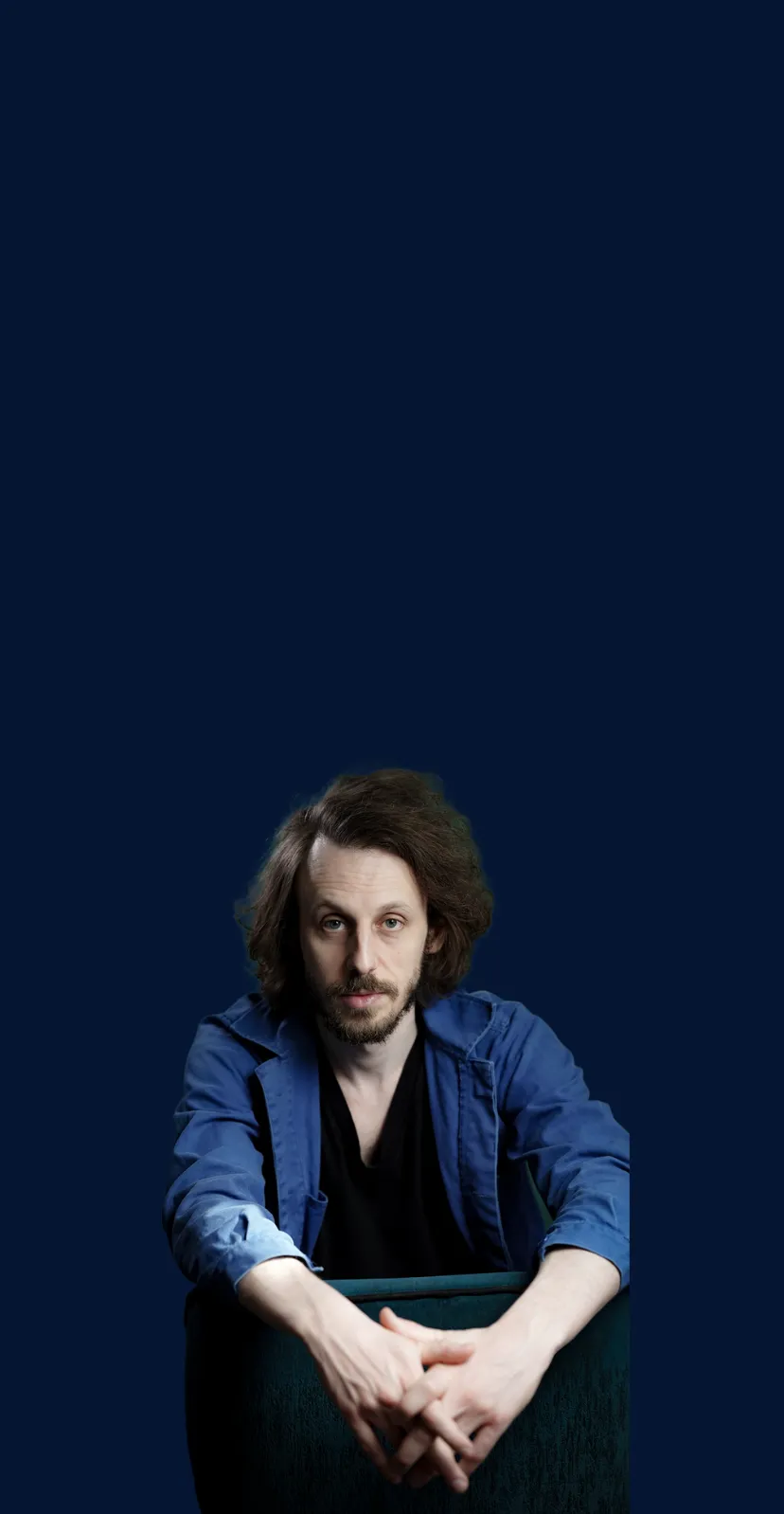
Join the team
Help us organize locally & get a free spot, or let's discuss partnerships.
Join the team
Help us organize locally & get a free spot, or let's discuss partnerships.
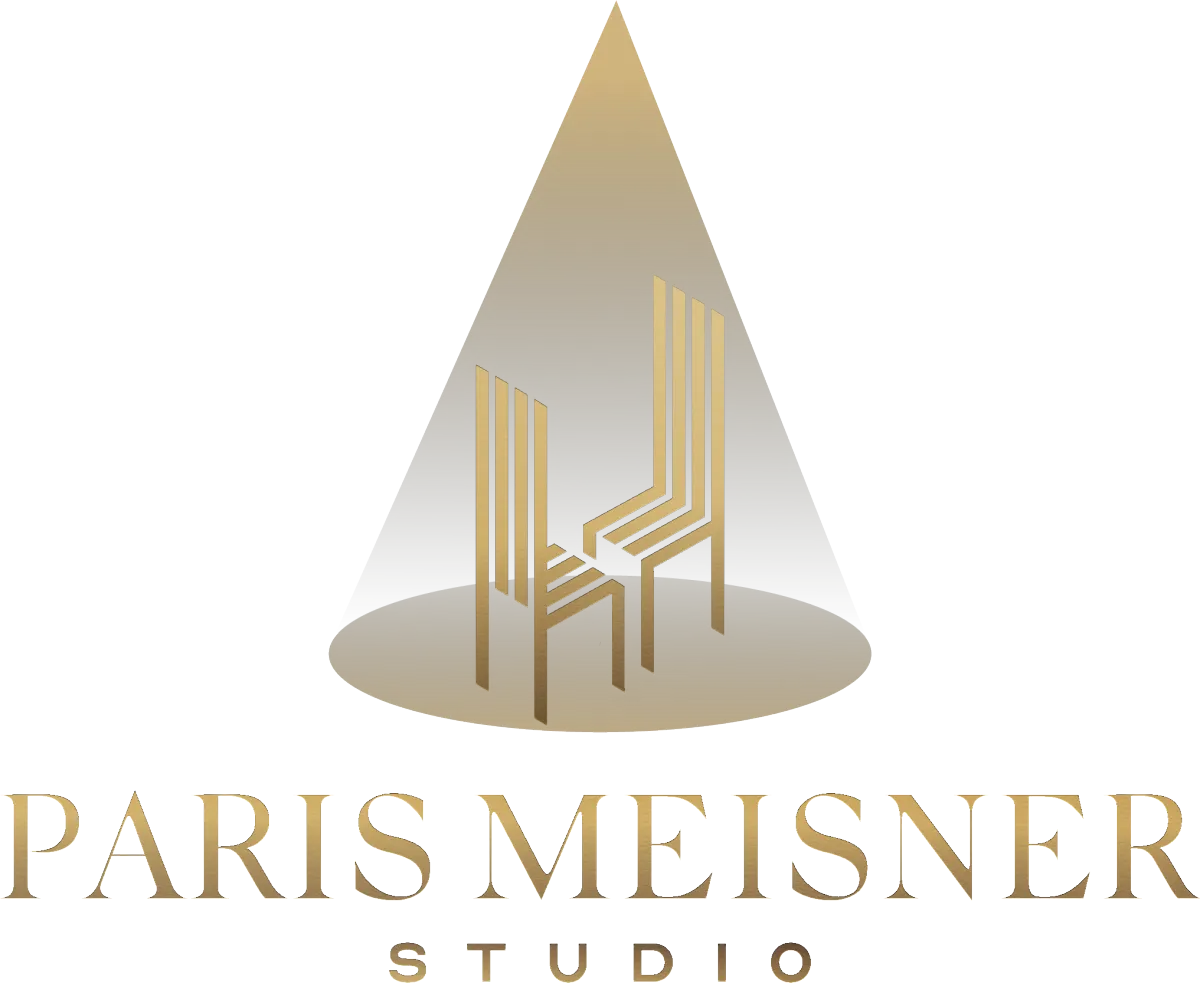
Acting school
& research center


